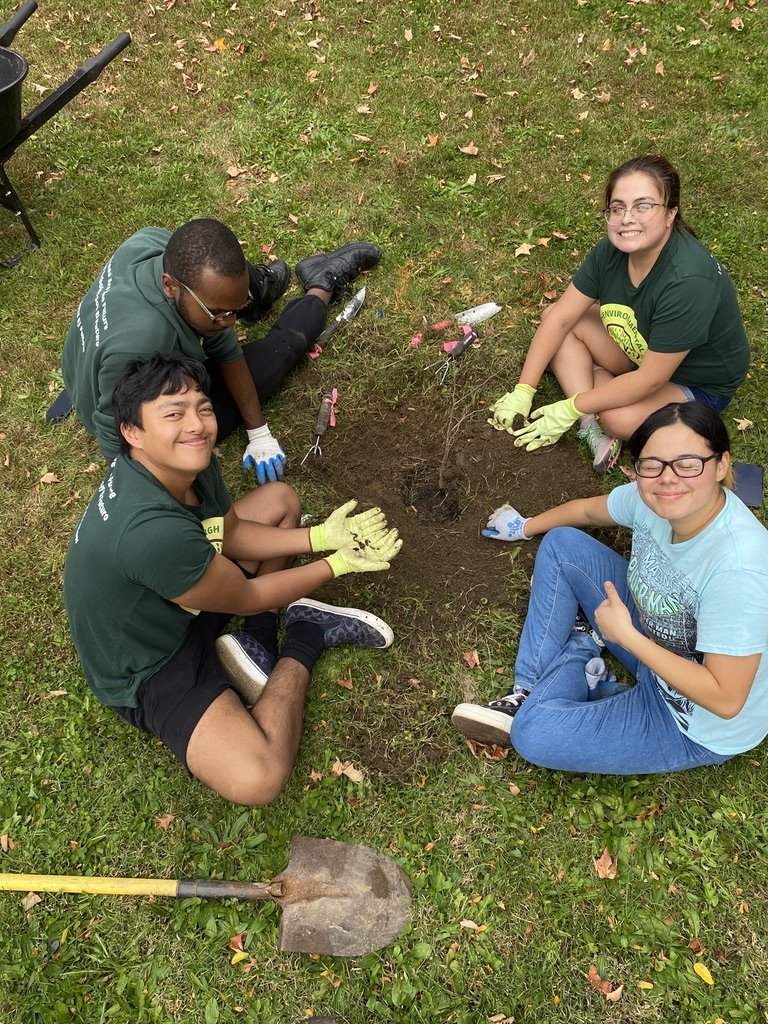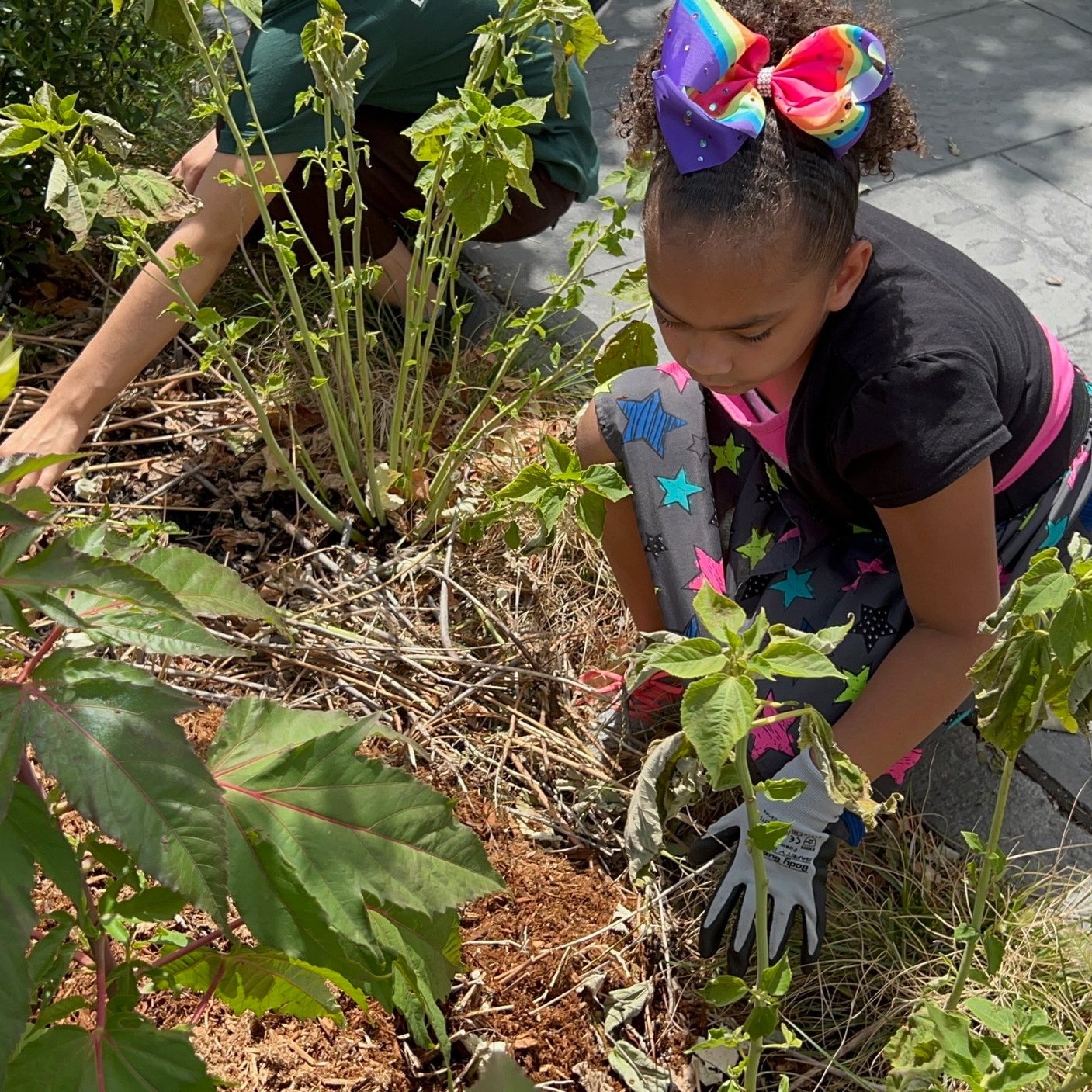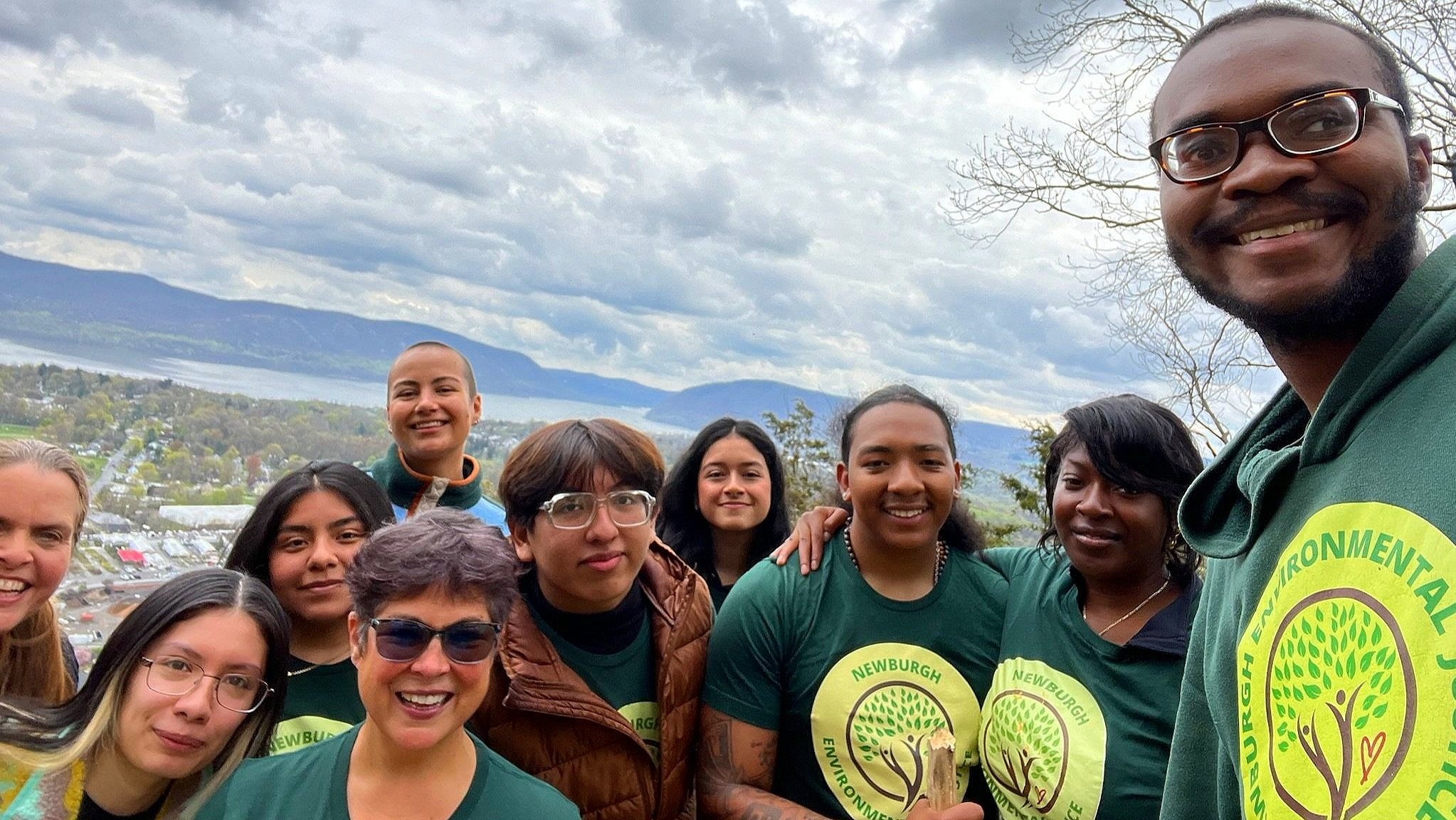
Environmental Justice Fellowship Program
Meet our 2024 Environmental Justice Fellows
Newburgh’s Environmental Justice Fellowship Program (EJFP)
has completed 5 successful years.
The Conservancy centers its work in the leadership of people of color, peer-to-peer community engagement, and equitable access to clean, healthy green spaces. We support young adults to become community leaders with strong workforce skills and a passion to share their knowledge and skills with their families, friends, neighbors, and local business owners. To promote community health and wellbeing, we provide Environmental Justice Fellows and other Newburghers opportunities to restore and protect our urban environment.
This leadership and skills-development program begins each year with a new EJ Fellow cohort of young adults eager to:
Give back to their community through outreach, listening sessions, education and hands-on planting & stewardship projects
Learn about nature and social justice and engage in citizen science, data collection and analysis
Share knowledge with other Newburgh residents, while gathering community concerns and suggestions
Report back to on the results of their work and recommendations for the future
Please join us for one of our many community work days between March & November each year to work with Fellows on caring for our precious urban forest, pollinator meadows and greenspaces!
The EJ Fellowship program began in 2021 with funding from TD Bank and the Arbor Day Foundation as a collaborative endeavor of Newburgh’s Conservation Advisory Council, the Greater Newburgh Parks Conservancy, and Outdoor Promise .
We are grateful to the City of Newburgh for providing support for the EJF program from 2022 to 2024. The 2025 program was supported by the Conservancy, its individual donors and a growing number of funders and partners, including Partners in Climate Action Hudson Valley, Cary Institute, Rhinebeck Rotary and The Rotary Foundation.
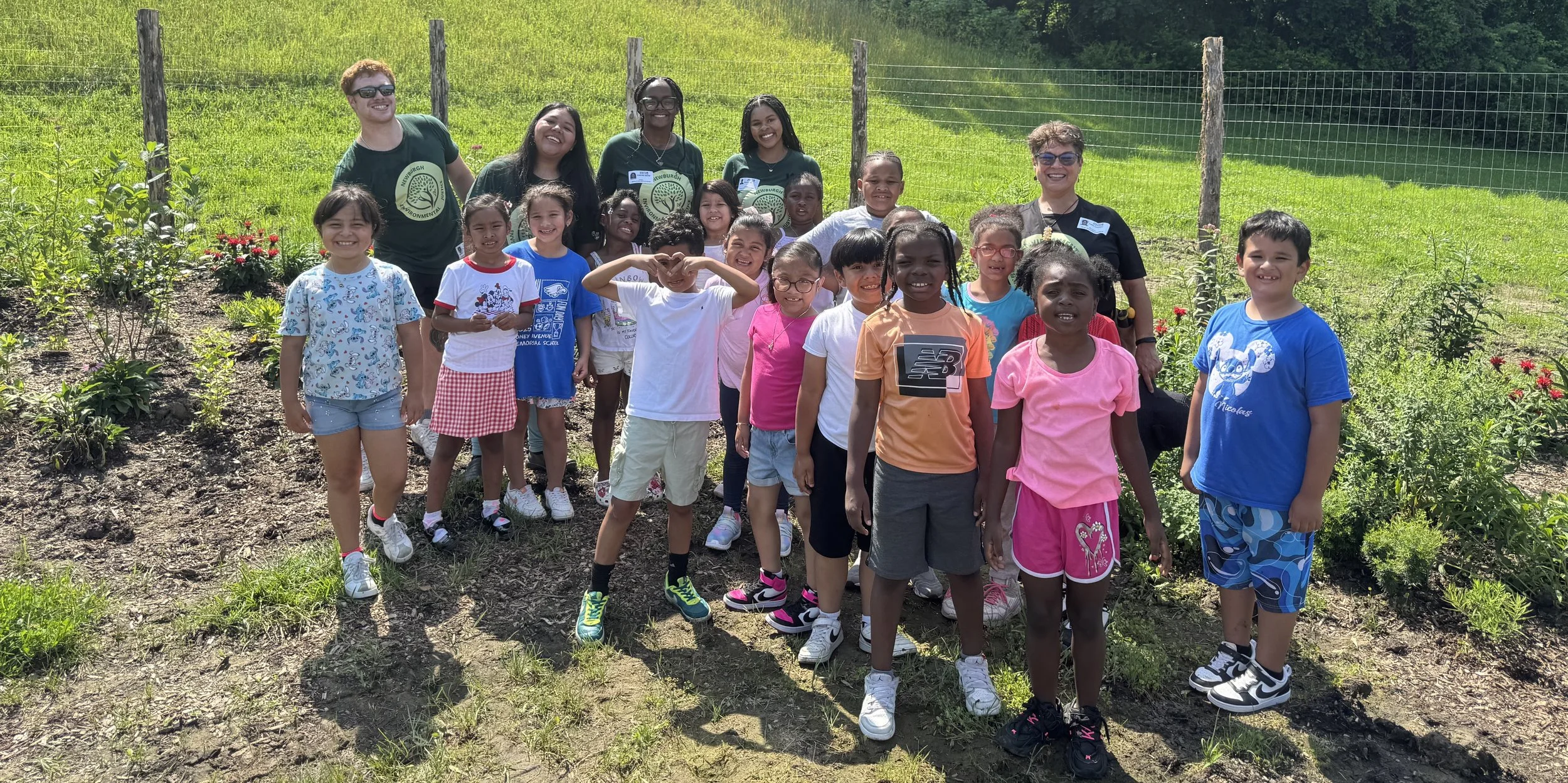
Our 2023 Fellows
-

Eileen Corrales
2023 EJP Fellow
-

Tyrese Billups
2023 EJP Fellow
-
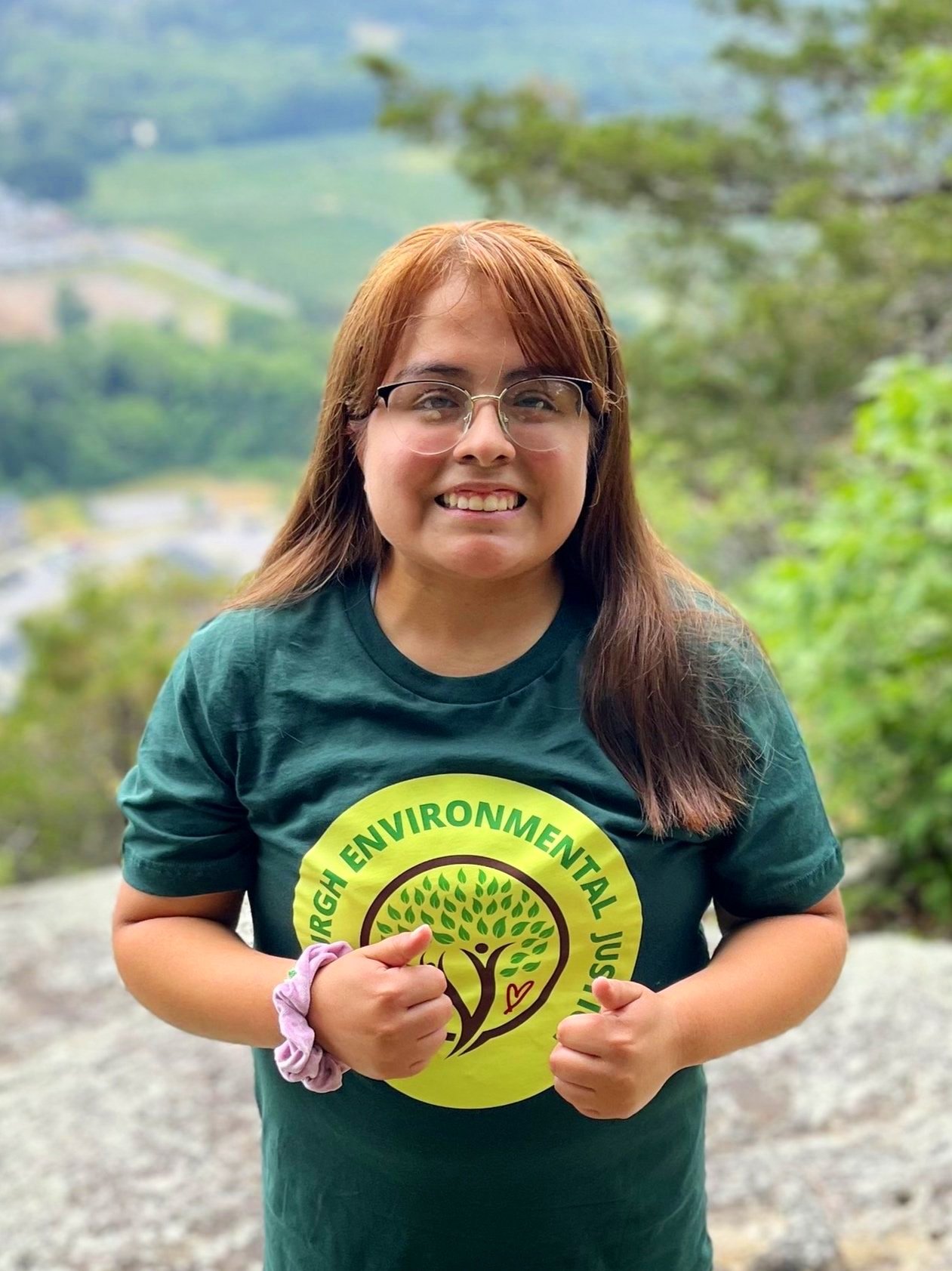
Nicole Villachica
2023 EJP Fellow
-

Emily Alta
2023 EJP Fellow
-

Enrique Contreras-Nava
2023 EJP Fellow
Newburgh Community Tree Survey
The EJ Fellows work to gather input from City of Newburgh residents. Make your voice heard - let us know what you think!
We’re compiling information on concerns residents have about trees, who wants trees and why, and who’s willing to help care for them. With this data, we make recommendations to the Conservation Advisory Council on key blocks where trees are needed and where homeowners, renters and business owners are committed to caring for trees.
Community input is absolutely essential! We hope you will spend a few minutes with our Fellows or online to give us your feedback.
WHAT BENEFITS DO TREES PROVIDE?
-
— Trees absorb carbon dioxide and release oxygen.
— Trees remove ozone, pollution and particulate matter from the air.
— Trees serve as food and shelter for other lifeforms (animals, fungus and other plants)
— Trees help retain stormwater, reduce flooding and prevent pollution from entering groundwater, streams and rivers.
— The environmental benefits of trees are directly related to tree size. Trees absorb carbon dioxide and water from the environment. Because this process takes place in a tree’s leaves and branches, the benefits increase as a tree grows in size. So it is in everyone’s interest to help trees grow and thrive!
-
— Trees filter the air and reduce pollutants in the air that trigger respiratory ailments such as asthma.
— Trees shade playgrounds, sidewalks, and parks, encouraging physical activity and overall fitness.
-
— Trees are aesthetically pleasing—beautifying our neighborhoods and streets.
— Trees can help to reduce crime.
— Trees enhance our emotional and mental health.
— Trees can even encourage drivers to slow down.
-
— Trees reduce the need for air conditioning in the summer by shading buildings.
— Trees help cool down the City of Newburgh
— Trees reduce the need for heat in the winter by serving as windbreaks.
-
According to the City’s Tree Inventory, Newburgh’s street trees bring the City an annual economic benefit value of over $500,000.
Greenhouse Gas Benefits by CO2 absorption: $4267.76
Water Benefits by preventing flooding and runoff : $42,390.66
Energy Benefits from shading and cooling: $208,445.08
Air Quality Benefits by producing oxygen: $31,089.04
Property Benefits from beautification: $222,083.22
TOTAL: $508,275.76
Trees also help to raise property values and to discourage redlining practices that harm black and brown neighborhoods in many ways, such as higher-than-market mortgage rates that put homeownership out of reach.
WELL, IT’S MORE THAN YOU MIGHT THINK!






